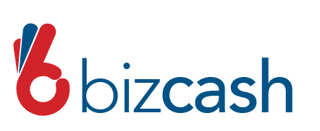
It’s not easy being a small business right now. Nearly a decade since the 2008 financial earthquake, GDP growth has petered out and the South African economy has moved into another recession.
In an environment fraught with economic and socio-political uncertainty, banks are again tightening up their lending practices – with the result that small businesses across South Africa are struggling to secure the funding they need to grow.
The convergence of a global drop in productivity, a sluggish domestic economy and the conservative turn in banking best practice has created an environment in which borrowing is difficult. Even where finance is made available, high interest rates have made borrowing from South African banks relatively expensive, and the terms are extremely arduous. With compounding interest and repayment penalties, many businesses are quickly in over their heads and swimming in debt.
Bursting with fresh ideas and growth potential, many businesses being stymied by cash flow constraints and by banks that simply won’t lend to them. Even at the best of times, borrowing from banks is a time-consuming process. That is unhelpful if a business needs to address cash flow issues quickly.
Moreover, bank loan applications themselves are complex and bureaucratic. Applying to a bank for a traditional business loan means subjecting a business to a number of traditional requirements that may not take into account the business’s strategic aims or dynamism:
CollateralInsufficient collateral is a major obstacle to acquiring a traditional business loan. New businesses will have minimal assets to put up as collateral, and founders may not have the will or means to put up sufficient personal assets as collateral. Established businesses may have invested in expensive capital goods that have lost value over time, and thus no longer serve as adequate collateral for the size of the loan required.
Cash flowBanks may look at current cash flow to determine the sustainability of a business. However, business loans are often sought precisely to address cash flow concerns. This can lead to a chicken and egg problem, whereby cash is needed to expand operations or fulfill large client orders in order to drive up revenue, but the lack of cash flow is an impediment to taking out a business loan.
To find out why your business can be faced with cash flow contraints, read our blog on The Five Most Common Causes of Business Cash Flow Problems.
Credit history
There are any number of reasons why a business may have a poor credit history, such as tough economic conditions or past strategic miscalculations. Banks may also take into account owners’ personal credit scores, which may not have a direct bearing on the state of the business.
Sector concerns
If a business operates in a depressed field, or in a sector deemed high risk, banks may be hesitant to extend loans.
The intangible value of ideasA great idea is only as good as its execution. Some banks avoid investing in startups or potentially disruptive technologies because of the perceived risk of innovative products. These institutions prefer to extend loans to more conventional industries or mature businesses.
In Summary
The problem is that these old-fashioned criteria for traditional business loans overlook the dynamism and innovation of emerging businesses, and fail to pay due attention to the cash flow requirements of established companies. Arguably, the lesson of 2008 is that banking needs to be less opaque and more personalised, avoiding cookie cutter approaches. Innovations that make lending smart, flexible and transparent are urgently required.
Against this backdrop, it’s perhaps not surprising that South African businesses are seeking alternatives to traditional business loans – through a new breed of agile, forward-looking lending platforms enabling them to pursue their growth objectives despite the obstacles
These new alternative financing solutions include both formal and informal channels, and offer varying combinations of lower interest rates and cheaper fees, quicker access to cash and less restrictive lending criteria.
What almost all of them have in common is the willingness to get to know your business in a more holistic sense, taking into account more than just narrow barometers such as credit ratings and collateral. In essence, they are more interested in where your business is going than where it’s been.
Download our free eBook below to find out more about Invoice Financing, Microlending and other alternatives to traditional business loans.





 Proudly financed by Reichmans Capital -
Proudly financed by Reichmans Capital -